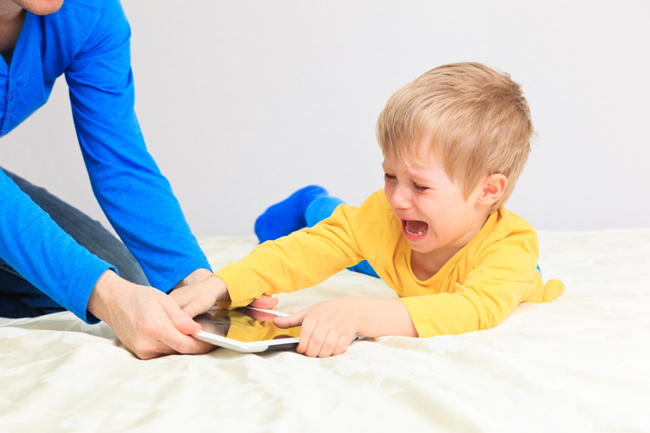Screen Time - How Much Is Too Much for Your Kids?
Guest Post by Amy Williams

Bedtime is not what it used to be.
When kids were little, it was often a time of reading books together and reflecting about the day while snuggled among the pillows and stuffed animals.
As kids grow up, they become tweens and teens who no longer want to be tucked in by their parents, and they are snuggling up with their cell phones, laptops or iPads. Studies are finding this may actually be detrimental to their development and overall wellbeing, all of which are linked to the amount of sleep they may or may not be getting.
Kidsmatter tells us taking technology to bed greatly impairs the amount and quality of sleep kids get. When they have ability to keep scanning through social media, watch videos, and chat with friends, their bedtime is often prolonged. They may be in bed, but they aren’t going to sleep when they should be.
And what they are doing may be as important as when they are doing it.
Involving the brain with exciting or provocative stimulus right before bed can lead to sleeplessness, worry, and possible nightmares. Equally as important is the light emission from the device itself.
The conversation.com recently discussed a study that reveals the light emitted from cell phones and laptops can impact overall sleep patterns. Exposure to these light emissions at bedtime can increase alertness and actually disrupt the body’s naturally occurring sleep rhythms.
Increased stimulus and alertness, coupled with disrupted sleep patterns, leads to teens not getting enough quality sleep. This leads to excessive sleepiness during the day and can cause a myriad of effects, including poor academics, mood swings, and even anxiety.
Their bodies and brains need down time to relax, rest, and regenerate.
There are some simple solutions.
- Parents can enforce a “no media zone” in the bedroom.
- They can place a curfew on electronics where the teens may have the devices, but they have to be turned off by a certain time.
- Another solution is to access parental apps or software programs to help enforce restrictions and provide parameters on healthy screen usage.
Technology and screen time can be a fun part of kids’ daily lives as long as it is used appropriately and benefits their development.
Use this handy infographic to talk with your child about the importance of sleep, how their phone use and habits may impair it, and how to create a reasonable plan so their screen time doesn’t interfere with their bedtime.

LIKE what you see? SHARE it with someone you LOVE!
What do you think? I love hearing from you, so leave me a comment below. Share your stories, post your challenges and if you benefited from this article, consider sharing it with a friend!
Screen Time - How Much Is Too Much for Your Kids: Return to Home

